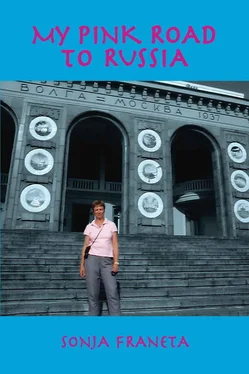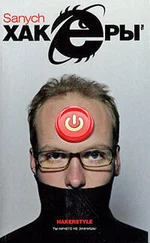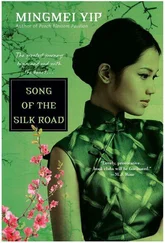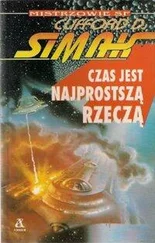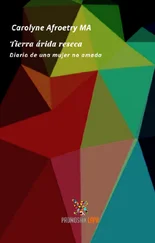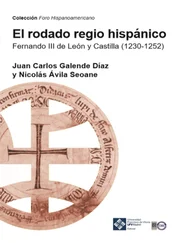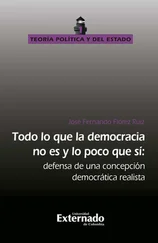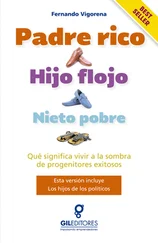In June of 1981 the Blessed Virgin Mary was said to have chosen six children, ranging in age from ten to sixteen years, to hear her message to suffering humanity in this village tucked away in a Communist land. One hot day these children were walking aimlessly up the hill called Crnica (Tsirnitsa) above Medjugorje. When they stopped to rest against a rock, the dirt loosening beneath their worn shoes, one of them looked up and the sun began to swirl. Mother Mary’s image formed in the air and spoke to them. They returned to the hill according to her instructions until she had finished all that she wanted to say. The children were to tell about their experience and urge people to save their souls. Each child was also entrusted with ten secrets. That’s how the story goes.
Had the oldest girl perhaps brought drugs from Sarajevo? This could be the devil’s work, said some. The children were examined by psychologists and priests. “Our lives are not easy,” the villagers said. “Communism has tried to suppress our beloved religion. We buy necessities with the little money we have and fill out many forms just to receive our pensions.” The villagers were proud that the Blessed Mother chose Medjugorje and readily believed the children.
More than half a million pilgrims streamed into the tiny village over the next four months. The little stone church could no longer hold them all. In the six years since the miracle, Mother Mary had reportedly appeared on occasion to the same six children, most of them adults by now, but the Catholic hierarchy in Rome refused to recognize the event as an “official” miracle. The children’s lives and the village had changed, and others wanted to see Mother Mary, so they came with hope to Medjugorje.
I was tired and grumpy from the drive. How could my mother believe in this stuff? Mary appeared to some children? And the hordes of people—what were they after? A fix? A free cure? A message about what to do next? What were we doing here anyway?
In putting a damper on my mother’s excitement, was I perhaps replicating the way she treated me as a child? She rarely supported my dreams, perhaps because of her own trapped feeling in her marriage and her past hurts. When I finished high school I wanted to go to Bermuda with my friends. “I’m saving up and we’re planning the trip. It’s so exciting!” But she dashed my hopes. “Oh, you’re dreaming.” She waved her hand at me. “It won’t happen.”
Mother said there was daily Mass at five o’clock. We could walk around a little, then go to Mass, then leave, was that okay? I said I would wait for her outside while she went to Mass.
As we approached the plaza in front of the church, several older women in kerchiefs circled on their knees in front of a statue of Mother Mary. They were praying aloud and crying fervently. More joined them. Some bent under the strain of crawling on their knees, but they did not stop, lost in their prayers. I told Mother I was going to the toilet. I stood in line. A group of men next to me were talking and pointed to the sun as it hung lower in the sky. In Serbo-Croatian they spoke animatedly about how it was swirling, one asking another if he could see. I stared until it swirled for me.
I suddenly felt sad that I no longer believed. Where had my faith gone? I had wanted to be one of those special children to whom Someone Holy appeared. Yet how could I be intolerant of the beliefs of others? I felt lonely among these believers.
Mother wanted to walk down the path the children had taken behind the church. The hill beyond the church where Mary appeared to the children was a rocky, bushy, thorny little area, not easily reachable except by goats. As we passed a priest hearing confessions under a tree, a line of people waiting farther off, I mumbled, “It’s been over ten years since my last confession.”
“How do you know this really happened?’ I asked my mother. “What are these secrets the children are supposed to keep and why?” Doggedly, she pointed to the spot where the children were said to have met the Mother of God—a rock on the Crnica hillside marked with a cross. Several pilgrims stood there, and more wound their way up. A car accident many years ago had left her right leg shorter, her foot swollen, her heel shattered. I wondered if Mother could handle the walk.
Cicadas sang monotonously. We passed cows and sheep grazing. Piled-up rocks formed low walls. A lazy peacefulness permeated the air. A woman’s movements in the field interrupted the calm—she seemed to be wrenching something from the ground. How did she feel about strangers passing by? When we reached the hill, Mother said she couldn’t go any farther, and I should go on. Maybe she felt the experience might renew my faith. Inside I was resisting the urge to shout, “No!”
I remembered my father’s rages. One time he threw a statue of Mary that my mother kept on their bedroom bureau into the kitchen garbage, cursing Mother and her Catholic faith. Horrified, I rescued Mary from the damp, smelly bag. I stroked and cradled her and even kissed her tearfully, placing her back on the bureau where she belonged. I was religious then.
Mother asked me to Mass one more time. I held firm. It was all so hypocritical. Why even bother? I walked her to the church and then wandered down the powdery path, among the still canvas tents, something clutching at the inside of my chest.
The outdoor cafe where we had arranged to meet was closed. I sat at an empty table and waited, anxious to get on the road again and find a place to stay for the night. As I looked up the path, I felt glad to see the solitary figure approaching. I knew it was Mother by her limp. She must have left Mass right after communion, because of me, I thought sadly. I stood up. She grew bigger as she limped closer.
Suddenly her limp seemed to hold all the tragedies of her life and mine. She and my father, the little our family had, choked me up. Irritated by her suffering, by her endless attempts to mold me, I was also grateful that we had come here together, that she let me have my feelings, that she was still alive. I thought of her blue eyes, so much like mine, and the gait she used to have that I preserve.
She thanked me for bringing her to Medjugorje and reached up to kiss me on the cheek. I let my tears flow for both of us.

My mother in traditional dress (last standing woman on right), with other villagers
They’re very poor, my aunt said,
the Slovenian women.
Met each other in the concentration camp
during the war
& been together ever since.
Both sickly—one can’t
breathe easily, the other
can’t go to the bathroom.
If it wasn’t for God
they’d kill themselves.
They found each other
at the camp & been
together ever since.
They say one was given
hormones by the Germans.
She wears pants now.
They live up the hill, she said,
they’re very poor,
always together & care
for each other a lot
ever since the camp.
I don’t want my grandmother to be forgotten. When all who knew her leave this world, how will she be remembered? What if the time of her own life and one generation after is all there is? I am not a grandmother so what will become of me?
She was petite and had very pale, smooth skin. She had a nose kind of like mine, small but angular. She loved her religion and she loved dressing up and looking nice. At the end of her life, a sweetness came over her, a childlike goofiness. After her strokes affected her brain, she enjoyed the Teletubbies and watched them obsessively on TV. She’d say very little, but smiled and laughed. After one of her strokes, she lost her ability to speak or understand English, but she communicated fine in Croatian.
Читать дальше
